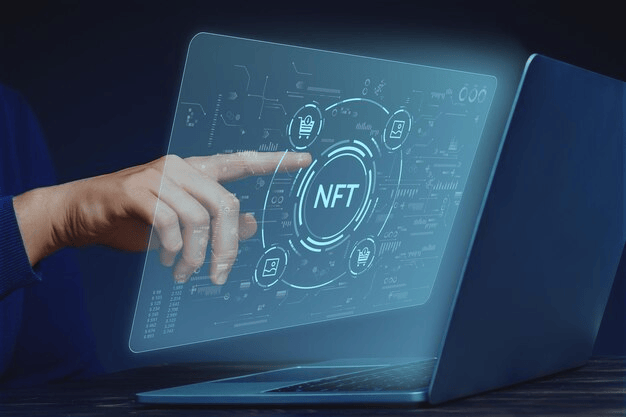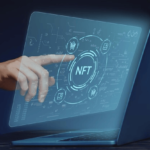
- January 11, 2024
NFT Token Development Services – A Comprehensive Guide to Non-Fungible Token Development
In recent years, the blockchain has emerged as a transformative technology, challenging traditional business models and introducing trust in transactions between parties that may not inherently trust each other. The genesis of blockchain in 2008 with Bitcoin was followed by Ethereum in 2014, an open-source blockchain platform enabling smart contracts on a distributed ledger.
Ethereum’s blockchain has played a crucial role in facilitating the creation of various tokens, including nft token development services. These unique tokens, representing digital or physical assets, have gained immense popularity due to their distinctive features and functionalities.
What is a Non-fungible Token?
Non-fungible tokens are cryptographic tokens that represent unique items, distinguishing them from other tokens. These items can be digital or physical, ranging from art and game items to commercial real estate. NFTs gained significant traction in 2012, marking the beginning of a trend that exploded in popularity, leading to a remarkable $174 million in earnings by November 2017.
Unlike fungible tokens, NFTs have a distinct protocol structure, making them irreplaceable and unique. NFTs are primarily traded on digital platforms or NFT marketplaces, with applications ranging from collectibles to fundraising in token sales platforms.
Attributes of Non-Fungible Tokens
- Standardization: NFTs bring standardization to the crypto world, providing characteristics like interoperability, traceability, liquidity, immutability, and provable scarcity.
- Interoperability: NFT tokens can be traded across different Distributed Ledger Technologies (DLTs), allowing seamless transactions on both decentralized and centralized custodial services.
- Traceability: Transactions involving NFTs are transparent due to the decentralized and non-regulated nature of blockchain technology.
- Liquidity: NFTs offer liquidity in the market, allowing for easy buying and selling on various platforms.
- Immutability and Provable Scarcity: The blockchain ensures the immutability of NFT transactions, and the scarcity of each token is provable, adding value to the assets.
- Programmability: NFTs can be programmed to include unique properties, enhancing their utility and attractiveness to users.
Popular Non-Fungible Token Projects
Several NFT projects have gained prominence in the crypto market, including CryptoKitties, Sorare, OpenSea, and Async.art, Rarible, Waifus, Decentraland, Axie Infinity, FND NFT, NFT Yourself, Hashmasks, POW NFT, and Binance Collectibles.
Attributes of Non-Fungible Tokens
- Ownership: NFTs are controlled by the owner on the blockchain and are safeguarded by a private key, providing security and control over the token.
- Transparency: Blockchain ensures transparency in all NFT transactions, making them visible and accountable.
- Interoperable Manner: NFT tokens can be bought or sold in NFT marketplaces using decentralized or centralized custodial services, ensuring interoperability.
- Indivisibility: NFT tokens are primarily indivisible in terms of utility, such as a plane ticket that cannot be used by a different person.
- Uniqueness: Each NFT token is unique, making it non-interchangeable and valuable.
Use Cases of NFT Development Services
NFT development services find applications in various industries, including gaming, digital assets, art tokenization, NFT marketplaces, fashion, lending platforms, real estate, music, videos, identity, collectibles, and more.
Token Standards for NFTs
Two Ethereum token standards are primarily used for NFT development:
- ERC721: The first and most popular token standard for creating Ethereum-based non-fungible tokens, ensuring uniqueness and non-interchangeability.
- ERC1155: An updated standard of ERC721, ERC1155 allows the representation of multiple classes of assets and enables massive transfers with reduced impact on the network.
Creating an NFT Token for Your Company
Creating an NFT involves selecting a token standard, with ERC721 being a popular choice in the current market. The process can be undertaken by a skilled token developer or by partnering with an NFT development service provider. The latter option ensures guidance from planning to deployment, making the process more accessible for businesses.
Cost of Creating NFT Tokens
A number of variables affect how much NFT development costs.
- Business Type: The nature of the business influences the development cost.
- Features: The features integrated into the NFT, such as utility and complexity, impact the cost.
- Design: The design intricacy of the NFT contributes to the overall development cost.
- Number of Tokens: The quantity of NFTs to be generated affects the cost.
- Complexity: The complexity of the NFT project influences development costs.
- Team Size: The location and size of the development team play a role in determining costs.
- Distribution: Considerations for token distribution affect the overall cost.
- Ongoing Support and Maintenance: Post-development support and maintenance contribute to the total cost.
While an exact cost cannot be predicted, NFT development costs generally start from $5,000, with variations based on specific business concepts.
Conclusion
Non-fungible tokens have become a trendsetter in the crypto industry, offering unique and valuable assets with applications across various domains. The development of NFTs involves careful consideration of token standards, attributes, use cases, and associated costs. As the demand for NFTs continues to rise, businesses exploring NFT token development should leverage the expertise of NFT development service providers for a seamless and successful implementation.

